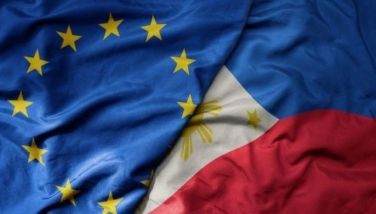Are small benefits taxable?
August 1, 2005 | 12:00am
I, together with my other officemates, would like to consult you with regard our employer who instructs our accountant to withhold tax on the food allowance and economic cost of living allowance or ECOLA that he regularly gives to us every month. It is my impression that, since our food allowance and ECOLA are so minimal, there should be no withholding of tax anymore.
Kindly inform us if our understanding is right and if we can report this wrong practice of our employer to the Department of Labor and Employment and the Bureau of Internal Revenue.
It is wise of you to understand first the tax implication of the issues you raised before bringing the matter before DoLE and BIR. Better still, use the grievance machinery in your office, if you have one, or talk to your human resources head or go straight to your boss on the issues you have raised.
Now to your query. Based on existing laws and jurisprudence, it is my opinion that the food allowances, subject to certain conditions, are not taxable while the ECOLA is. Let’s discuss the points one by one.
The BIR already has a set of rules to answer your query. These rules generally apply in considering the tax consequences of certain benefits given by employers to their employees, whether rank-and-file, supervisory or managerial.
One rule is that small or "de minimis" privileges given to employees by an employer shall not be included as items of gross income for income tax purposed nor should they be included in the computation of the P30,000 threshold as non-taxable bonus. As to the P30,000 non-taxable bonus, however, benefits given in excess of the threshold amount shall be taxable to the recipient- employee.
In other words, small or "de minimis" benefits are neither subject to income tax on compensation nor to the fringe benefits tax. Furthermore, no withholding tax shall be imposed in view of their exclusion and exemption from tax.
The above-mentioned principles in conjunction with Revenue Regulations No. 3-98, as amended by RR 8-2000 and 10-2000 have been referred to by the BIR in ruling that meal and food benefits granted, although not intended to be used for overtime work, may still be added in the enumeration of "de minimis" fringe benefits, provided these benefits do not exceed 25% of the daily minimum wage. Any excess over this amount shall be considered other benefits as contemplated under Section 32(B)(7)(e)(iv) of the Tax Code of 1997. The excess of the meal and food allowance given over the "de minimis" ceiling shall still be exempt, provided that it, together with the total amount of other benefits, shall not exceed P30,000. (BIR Ruling No. 23-2002 dated June 21, 2002).
Applying the above rules to your situation, the food allowance given to you and your co-employees (which is not intended to be used for overtime work) may still be added in the enumeration of "de minimis" fringe benefits. The portion of the food allowance not exceeding the 25% of the daily minimum wage may be considered "de minimis" meal benefit and, therefore, tax exempt.
The excess over this amount shall be considered as "other benefits", as contemplated under Section 32(B)(7)(e)(iv) of the Tax Code of 1997, which shall still be exempt, provided that it, together with the total amount of other benefits, shall not exceed the P30,000 threshold (BIR Ruling No. DA-238-2003 dated July 23, 2003).
With regard to your ECOLA, the BIR has consistently ruled that this is considered as "compensation income", which is defined as the remuneration for services performed by an employee for his employer under an employer-employee relationship. Accordingly, ECOLA shall be subject to the withholding tax, which shall be withheld and remitted by your employer to the BIR.
It should be noted, however, that your boss, who is required to deduct and withhold the tax on compensation, shall furnish you and your co-employees the Certificate of Income Tax Withheld on Compensation (Form 2316, formerly Form No. W-2) on or before January 31 of the succeeding calendar year.
I hope I was able to assist you with our query and, more importantly, for you to share this learning with whoever is responsible for withholding your taxes.
(Raymund S. Gallardo is tax partner of Laya Mananghaya & Co./KPMG. Questions and comments are welcome. Messages to the author can be sent by e-mail at [email protected]).
Kindly inform us if our understanding is right and if we can report this wrong practice of our employer to the Department of Labor and Employment and the Bureau of Internal Revenue.
It is wise of you to understand first the tax implication of the issues you raised before bringing the matter before DoLE and BIR. Better still, use the grievance machinery in your office, if you have one, or talk to your human resources head or go straight to your boss on the issues you have raised.
Now to your query. Based on existing laws and jurisprudence, it is my opinion that the food allowances, subject to certain conditions, are not taxable while the ECOLA is. Let’s discuss the points one by one.
The BIR already has a set of rules to answer your query. These rules generally apply in considering the tax consequences of certain benefits given by employers to their employees, whether rank-and-file, supervisory or managerial.
One rule is that small or "de minimis" privileges given to employees by an employer shall not be included as items of gross income for income tax purposed nor should they be included in the computation of the P30,000 threshold as non-taxable bonus. As to the P30,000 non-taxable bonus, however, benefits given in excess of the threshold amount shall be taxable to the recipient- employee.
In other words, small or "de minimis" benefits are neither subject to income tax on compensation nor to the fringe benefits tax. Furthermore, no withholding tax shall be imposed in view of their exclusion and exemption from tax.
The above-mentioned principles in conjunction with Revenue Regulations No. 3-98, as amended by RR 8-2000 and 10-2000 have been referred to by the BIR in ruling that meal and food benefits granted, although not intended to be used for overtime work, may still be added in the enumeration of "de minimis" fringe benefits, provided these benefits do not exceed 25% of the daily minimum wage. Any excess over this amount shall be considered other benefits as contemplated under Section 32(B)(7)(e)(iv) of the Tax Code of 1997. The excess of the meal and food allowance given over the "de minimis" ceiling shall still be exempt, provided that it, together with the total amount of other benefits, shall not exceed P30,000. (BIR Ruling No. 23-2002 dated June 21, 2002).
Applying the above rules to your situation, the food allowance given to you and your co-employees (which is not intended to be used for overtime work) may still be added in the enumeration of "de minimis" fringe benefits. The portion of the food allowance not exceeding the 25% of the daily minimum wage may be considered "de minimis" meal benefit and, therefore, tax exempt.
The excess over this amount shall be considered as "other benefits", as contemplated under Section 32(B)(7)(e)(iv) of the Tax Code of 1997, which shall still be exempt, provided that it, together with the total amount of other benefits, shall not exceed the P30,000 threshold (BIR Ruling No. DA-238-2003 dated July 23, 2003).
With regard to your ECOLA, the BIR has consistently ruled that this is considered as "compensation income", which is defined as the remuneration for services performed by an employee for his employer under an employer-employee relationship. Accordingly, ECOLA shall be subject to the withholding tax, which shall be withheld and remitted by your employer to the BIR.
It should be noted, however, that your boss, who is required to deduct and withhold the tax on compensation, shall furnish you and your co-employees the Certificate of Income Tax Withheld on Compensation (Form 2316, formerly Form No. W-2) on or before January 31 of the succeeding calendar year.
I hope I was able to assist you with our query and, more importantly, for you to share this learning with whoever is responsible for withholding your taxes.
(Raymund S. Gallardo is tax partner of Laya Mananghaya & Co./KPMG. Questions and comments are welcome. Messages to the author can be sent by e-mail at [email protected]).
BrandSpace Articles
<
>
- Latest
Latest
Latest
August 27, 2024 - 11:10am
August 27, 2024 - 11:10am
August 27, 2024 - 12:00am
August 27, 2024 - 12:00am
August 19, 2024 - 3:10pm
August 19, 2024 - 3:10pm
August 12, 2024 - 9:15am
August 12, 2024 - 9:15am
August 9, 2024 - 3:00pm
August 9, 2024 - 3:00pm
Recommended
September 30, 2024 - 12:00am

























